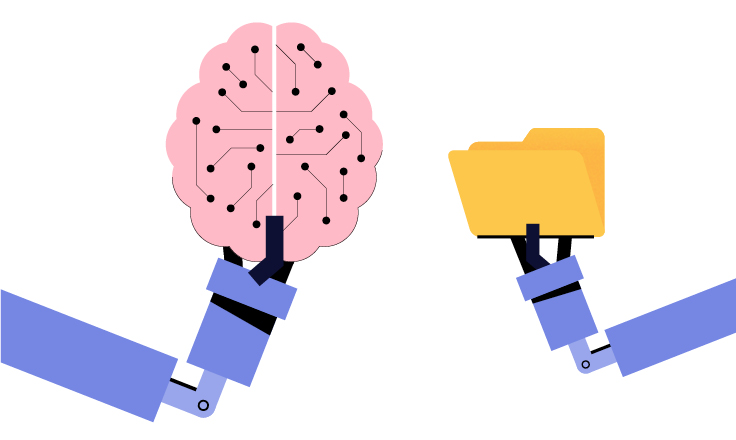How is AI being used in financial institutions?
A key factor to keep in mind is that AI can be used to completely transform how financial institutions, companies, and even consumers access and manage a host of financial-driven activities. AI is enhancing cybersecurity and fraud detection specifically for financial institutions by improving security measures, identifying compromised information, and ensuring compliance with financial regulations. With increasing user acceptance and even regulations becoming more defined, financial institutions such as banks are quickly going to fall behind the curve if a myriad of AI protocols are not soon established. The top applications for AI are:
Artificial intelligence chatbots
Whether financial institutions are looking to improve their customer services or enhance decision-making processes, AI chatbots are taking the spotlight. They are currently the most integrated tools for their ability to utilize natural language processing and curate personalized insights from user data. These are playing a pivotal role in enhancing customer service, from dealing with issues to compiling comprehensive overviews at record speeds to evaluate both an individual's potential and an institution's loan risk appetite. There is also an increasing use of speech-to-text technology in similar areas.

AI fraud prevention software
Fraud prevention software is probably the strongest argument for AI in the industry, as banks and financial services industry are at significant risk of a whole host of security breaches. Digital environments have opened up a whole new world of risk, but AI in fraud prevention is not only able to automatically trigger risk management protocols, but also analyze and single out irregularities in patterns at a speed and accuracy rate that humans simply can't replicate. AI fraud prevention can even help identify key aspects of financial behavior that could indicate bad practices, minimize unwanted scenarios, and create products such as anti money laundering software.
Image recognition
One of the newer applications of AI in finance is image recognition. With the use of images and videos, artificial intelligence is able to take specific information and provide insights from imagery. This can be used to streamline identity document verification, supporting and enhancing KYC protocols while expediting customer onboarding. It can also be used to improve and even speed up responses to insurance claims, as artificial intelligence will be better at spotting visual issues and determining their severity.







